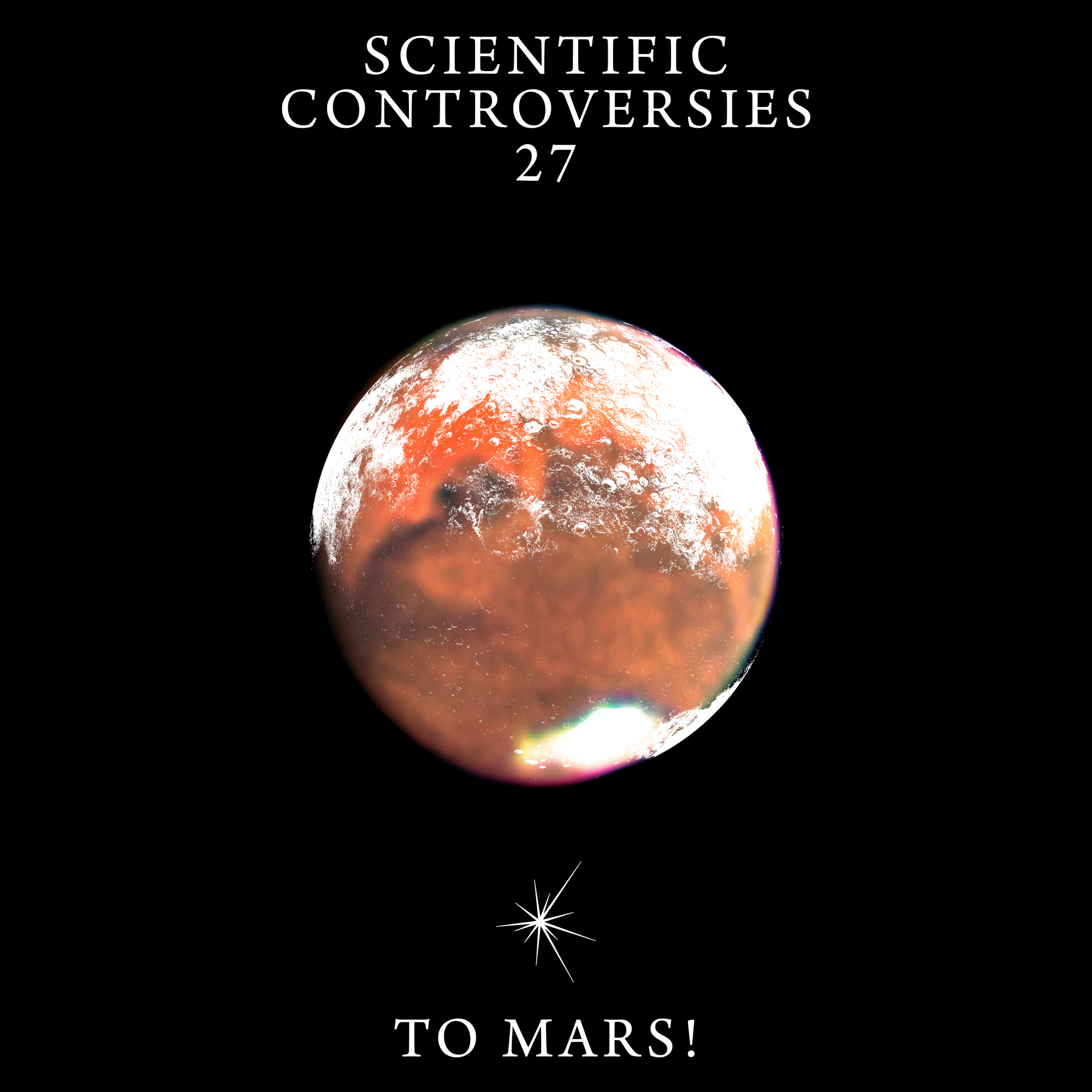
Scientific Controversies No. 27: To Mars!
Hosted by PW Director of Sciences Janna Levin, our Scientific Controversies series brings creative minds together to celebrate the passionate spirit of scientific curiosity.
Humanity has ambitions. As NASA’s Artemis mission prepares to inhabit the moon – ultimately with an eye on getting To Mars! – we have to consider the limitations of our bodies under the stresses of deep space exploration. The same ingenuity invested in spacecraft design to get us to Mars could theoretically be applied to biological design, to engineering humans that can sustainably inhabit deep space. But should we?
Our guest, Dr. Christopher Mason, a pioneer in aerospace medicine and genetics has proposed a ten-phase, 500-year program to engineer the human genome for increased tolerance to the extreme environments of outer space. Prof. Rana Adhikari was a critical participant in the Nobel Prize and Breakthrough Prize winning LIGO project which discovered the sound of two black holes colliding, and he is engaged with NASA, National Science Foundation, and Indian Space Research Center Organization in new ambitious international collaboration. He will be joined by physicist Rana X. Adhikari and our Director of Sciences, Janna Levin, in a conversation across space exploration, biotechnology, and the ethics of designing humans for life off planet Earth.
Join us after the conversation for star gazing in the garden with the Amateur Astronomers Association of New York and enjoy Eritrean-Ethiopian food from the Makina Cafe.
About the Participants
Christopher E. Mason is a geneticist and computational biologist who has been a Principal Investigator and Co-investigator of 11 NASA missions and projects. Mason is Professor of Genomics, Physiology, and Biophysics at Weill Cornell Medicine and the Director of the WorldQuant Initiative for Quantitative Prediction. He also holds affiliate appointments at the New York Genome Center, Yale Law School, and the Consortium for Space Genetics at Harvard Medical School. Dr. Mason is the author of The Next 500 Years: Engineering Life to Reach New Worlds.
Rana X. Adhikari is an experimental physicist with interests in fundamental physics including tests of gravity and quantum mechanics. He is a professor of physics at the California Institute of Technology (Caltech) where he leads a research group on techniques for precision measurement as related to gravitational wave detection and searching for signatures of emergent spacetime using exotic quantum measurements. He is among the scientists responsible for the U.S.-based Laser Interferometer Gravitational-wave Observatory (LIGO) that discovered gravitational waves in 2015. He received the New Horizons in Physics Prize in 2019 and was Co-Recipient of the Albert Einstein Medal in 2017. He is actively involved in the LIGO-India project, which aims to build a gravitational-wave observatory in India.
Janna Levin is the Pioneer Works Director of Sciences and the editor-in-chief of Pioneer Works Broadcast. She is also the Claire Tow Professor of physics and astronomy at Barnard College of Columbia University. A Guggenheim Fellow, Janna has contributed to an understanding of black holes and cosmology. She is the presenter of the NOVA feature Black Hole Apocalypse, aired on PBS—the first female presenter for NOVA in 35 years. She is the author of four books, one of which won a PEN prize for a first work of fiction. Her latest book is Black Hole Survival Guide.
Scientific Controversies is supported by Science Sandbox, a Simons Foundation initiative dedicated to engaging everyone with the process of science, and the Alfred P. Sloan Foundation Program in Public Understanding of Science and Technology, bridging the two cultures of science and the arts.